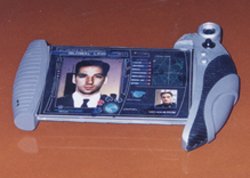Donald Schipani
Member
- Oct 8, 2013
- 13
- 0
- 0
Having been in the R&D Mgmt. section of various computer companies (most now defunct), I can tell you that the same holds true for computers (and s-phones) as it does for anything else we build. Form, Fit & Function. In my experiences in companies like HP, DEC (thats Digital Equipment Corp - for those who don;t remember), Apollo Computer, Prime Computer and the like, I can tell you that any computing device has power and software, topping the list of "next technologies". Frankly, I have seen software being the driving force in every case, from large mainframe super-computers to laptops. Yes, Form/Fit also play a huge roles as well, that's why it is ALWAYS a battle to juggle those three (form, fit & function) to satisfy the end-user. One technology that was said to live forever is Moore's Law, (altho most on this forum know this). If not, see here. That is not possible today due to manufacturing limitations. Until THOSE limitations are solved (organic transistors anyone?), then any major development will be also limited to power and size, glass technologies, and the other "sundry" technologies surrounding the main technology, packaging hardware with more transistors, etc. IMHO.


